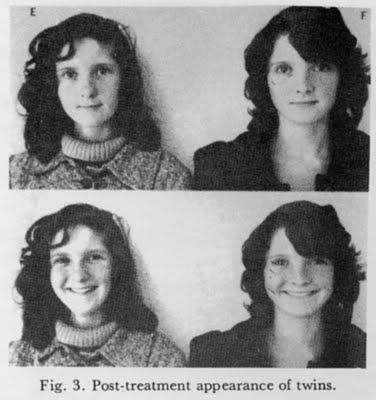Great thread, some interesting perspectives. I have a lot of time for what @Kelj is saying having struggled with related issues myself, but do understand people’s hesitancy to an ad libitum approach after calorie restriction, especially given some intense fears over PUFA intake.
Having thought about this long and hard, I think a big issue is this...
Whether we like it or not, a lot of us have grown up and are still deeply embedded in societies/communities that, in many ways, are seen as significantly less than ideal on a health front. As such, we can’t get away from the following:
Thus, in the real world, we’re always going to be left with a horribly imperfect trade-off. Always. Why? Because we have two options:
- The powerful associations we’ve built up over decades around foods/drinks we now believe ‘unhealthy’ for whatever reason(s).
- The easy access to and continued societal promotion of such foods.
- The real emotional cravings we might for something – cravings are not all because what we really want is a load of sodium, potassium etc to make up some nutritional deficiency.
- The way in which food/drink we may deem unhealthy is seen as fundamental to social rituals in communities we’re a part of – rituals that bond us and bring us together.
- The highly stressful environments most of us have to deal with on a regular basis in and out of work and the limited ways we have to realistically manage that stress. It would great at work if we could stop the stressful events from ever happening in the first place, but we can’t. Like wise, it would be great if, as soon as we got stressed, we could all get a massage, go for a nice relaxing walk in the sun, meditate for a bit, jump on the exercise machine etc. but sadly that’s not reality either. Hence the reason so many people in the real world use comfort food and drink to relieve stress.
- The limited amount of time and mental resources we have to cook and prepare all the ‘right’ foods as we believe them to be.
- The fact that our health is so much more than nutrition and that, for example, it’s greatly improved by fulfilling our social needs and wants, which feeds back into some of the above points.
- The fact that we can’t always perfectly control things such that ‘good’ foods/drinks will be available to meet our energy demands.
- Etc.
1) Be more nutritionally focused and, depending on what information we choose to believe, dedicate ourselves to getting it ‘right’ e.g. minimising PUFA as much as humanly possible.
From this perspective our environment will always be seen as inherently dangerous/toxic – we’ll always have to be on guard to protect ourselves. We’ll have to continually control any cravings we may have and deal with a mindset that might increasingly view social situations as ‘problematic’ on some level. We'll also have to contend with negative outcomes in spite of all our efforts and, likewise, any conflicting health information that may undermine our views.
2) Be more relaxed and choose to ‘go with the flow’ of the real world more, enjoy things instead of seeing them more as a means to an end, honour our cravings, be content with lower physical expectations – expectations which, to be honest, can often be about more than simply health i.e. low self esteem and, thus, wanting to impress others.
From this perspective our environment will be seen as more playful/fun. However, we’ll have to be content with less control on the food/drink front, we’ll have to learn to quieten any health anxiety we may have because of certain information we’ve found convincing in the past etc., which will be a scary notion for some.
Which side you come down more heavily on depends on what you believe to be more important and what you think will lead to the biggest win. For those who have been significanty restricting calories, possibly because of an eating disorder, I would argue the latter may be more fruitful.
Personally, these days, I'm more heavily weighted on the side of option 2. Like Kelj I have had fabulous results from being less restrictive as I upped the calories. I might consume more PUFAs than others on this forum at times, but I’m really enjoying my food/drink again, I'm infinitely calmer and, according to my health tests, healthier than I’ve been in a long time.
Indeed, we might not like it, but regardless of what we do, we can still get ill. Moreover, some of our best memories and intuitively healthiest times are during carefree moments, when we're just enjoying what the world serves up. Whilst, for many, including myself, a more nutritional focus can too easily conjure negative beliefs about the world, increase amounts of worry etc. In particular, it can too easily end up feeding perfectionist traits when, as I said earlier, real life is an imperfect trade-off – one that will always sorely disappoint the idealistic pursuit.
Interesting post, for me is a mix of 1 and 2.
I'm a bit relaxed lately, and not stressing about foods in general, but I'm aware of what could harm me like deep fried foods, nuts and seeds, raw vegetables, iron fortified foods, chips, cookies, commercial breads and high processed foods in general and I try to avoid them as much as possible without being orthorexic.
I'm towards eating foods that I enjoy and digest well and gives me energy, not obsessing about gorging 2 liters of orange juice and milk anymore that's not natural.
I'm enjoying a good steak with mashed potatoes, a fish or shrimp with rice and sauteed vegetables, a coffee with milk and a egg/banana pancake, some fruits and cheese, soups (meat stews, chicken broth w mushrooms), scrambled eggs etc.
It's all about eat nutritious foods that you enjoy and gives you energy.

